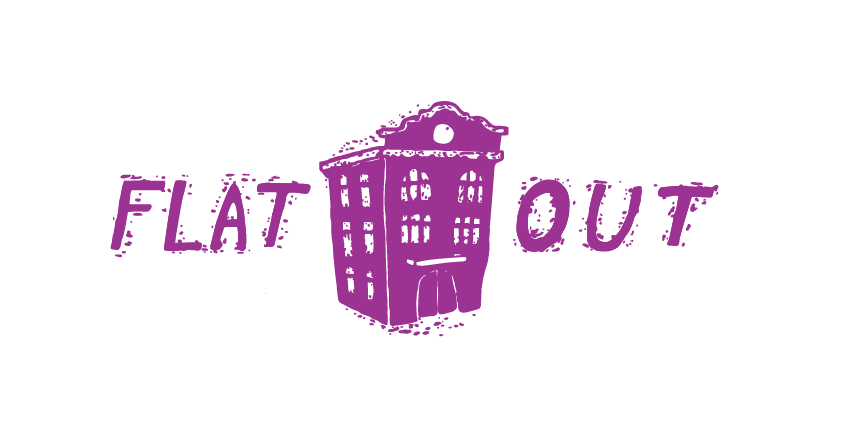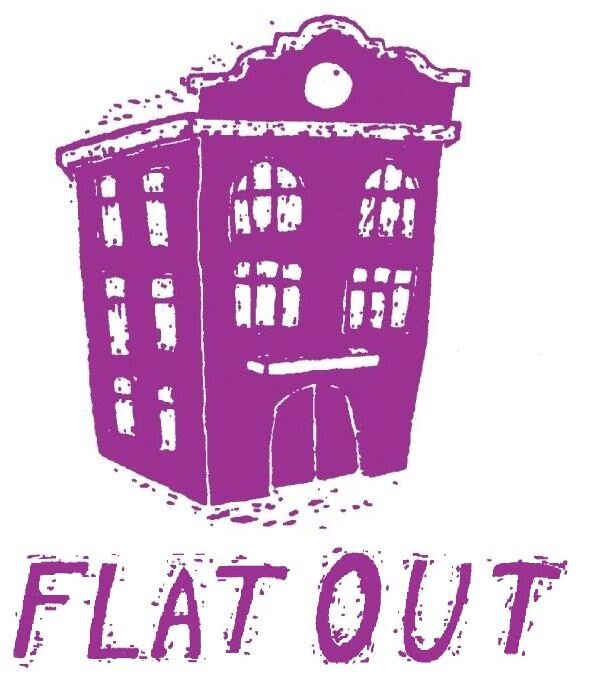Social Work Placement at Flat Out
I have been privileged to do my final social work placement at Flat Out. As a soon to be human services worker with so much to learn, it has been a unique opportunity to hone my values, both personal and professional, and be in an environment that allows me to put those values into practice.
Flat Out is an outlier in the human services, as an abolitionist and collective feminist organisation. Through its funding choices, Flat Out makes sure it doesn’t compromise its ability to walk beside criminalised women, trans and gender diverse people in its individual support and advocacy or limit the ability of the organisation to advocate systemically for decarceration.
Human service organisations have values, a vision, a mission statement and objectives. Those values may be well-meaning, but the reality can be a disconnect between values and day to day work.
Constraints are many. Limits to engagement length, long waiting lists for services, competitive tendering for funding, prescriptive funding guidelines and onerous surveillance and compliance processes. . These can drain the time and resources of workers in small grassroots community organisations that may have otherwise been spent doing direct practice.
As social workers we must make ‘assessments’, ‘identify and categorise risk’ and decide on the ‘intervention’ we think best. I put these words and phrases in quotations because it can be easy to construe an ‘assessment’ as unbiased fact. Yes, there are theoretical underpinnings and practice direction or focus, but much of social work practice can be vague and grey when it comes to decision making at a practice level, leaving decisions of what to include to the individual worker. This can allow personal morality, bias, assumptions, stigma and discrimination to influence an assessment that could follow someone for the rest of their life.
For criminalised people, women and folks beyond the gender binary particularly, the chance of stigma and discrimination is especially high. This experience is compounded again for those who are First Nations, culturally and linguistically diverse and/or disabled. The continuing effects of colonialisation and white supremacy that bubbles under the surface of Australian society is especially potent in social work.
This can be attributed at least in part to social work still having a mostly white, middle class workforce. This creates a level of distance with a majority of the people we work with, many of whom are on low incomes and who have experiences within the systems that most workers may never have. The implications of this can be a level of elitism. Without experience of personal or systemic discrimination themselves many workers can’t imagine why people can’t just ‘deal with it’. Lack of diversity can also mean workplaces are not safe for people from non-white, non-heteronormative backgrounds, which can be a barrier to people with lived experience coming into the workforce.
As a result, the problems people seek support for can be stripped of context. Social workers learn about the complexity of human experience and are also taught that people need to be ‘categorised’. Neoliberal thinking and service delivery perpetuates this through strict eligibility criteria. A person’s level of ‘risk’ or ‘vulnerability’ can determine their eligibility. This can be especially damaging to the people Flat Out support, whose criminal history is often used against them through stigma and discrimination, or to make them “ineligible” for essential services.
The binary of victim/perpetrator in relation to family violence is especially pertinent in this context, as victim survivors can be criminalised on the basis that they don’t present as a ‘victim’ should – not appearing weak or vulnerable, fighting back or acting in an angry or aggressive manner. For people Flat Out supports, calling the police for help with family violence can lead to criminalisation for self-defence or unrelated matters, but is also often the only ‘help’ available. To enter these systems can be daunting, considering what is asked of people to even assess their eligibility for a service, or “proof of need”.
The human service system can operate as an extension of the prison industrial complex. It can intrude into the lives of diverse individuals, families and communities and pick apart any sign of ‘deviance’, in a way it never would of a middle class white person or family. I can imagine many workers would feel uncomfortable sharing their personal life stories over and over again for at times, no positive outcome or worse - for the information to go ‘on file’ to be used against you. I know I do.
As social workers we can wield a great amount of power and influence over outcomes for the people we work with. The language we use in our discussions has power. The words we use in our case notes have the potential to be advocacy tools but equally, to demonise and pathologise the people we’re working with.
Social workers are human. We are not exempt from the influence of the colonial history of this country, of the White Australia policy that was in place until only around 50 years ago and continues to shape Australian politics and society. We must recognise this reality in the present and either reckon with it or repeat these cycles of trauma.
- Georgette Thomas-Page

